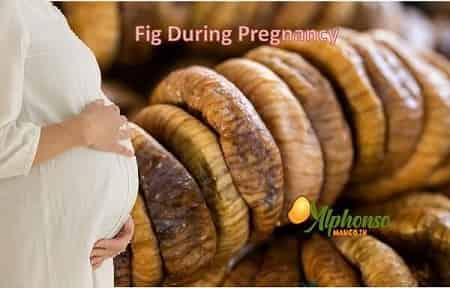
Fig During Pregnancy
By Prashant Powle
Fig During Pregnancy Dried Anjeer is a delicious and nutritious fruit that pregnant women can enjoy. They are a natural, healthy source of essential vitamins, minerals, and fibre, all important...
are dried figs good during pregnancy
are dried figs safe during pregnancy
are fig bars safe during pregnancy
are fig newtons healthy during pregnancy
are figs bad for pregnancy
are figs healthy during pregnancy
are figs healthy for pregnancy
are figs ok during pregnancy
are figs ok for pregnancy
are fresh figs good during pregnancy
Benefits Of anjeer in pregnancy
benefits of dried anjeer during pregnancy
benefits of dried fig during pregnancy
benefits of eating fig during pregnancy
benefits of fig during pregnancy
Benefits Of Fig in pregnancy
benefits of having fig during pregnancy
can dried apricots be eaten during pregnancy
can eat dried figs during pregnancy
can eat fig during pregnancy
can i eat dried fig during pregnancy
can i eat dried figs in pregnancy
can i eat dried figs while pregnant
can i eat dry fig during pregnancy
can i eat fig during pregnancy
can i have dried figs during pregnancy
can i have fig during pregnancy
can one eat figs during pregnancy
can u eat dried figs during pregnancy
can u have figs during pregnancy
can we eat dried fig during pregnancy
can we eat dry anjeer during pregnancy
can we eat dry fig during pregnancy
can we eat fig during pregnancy
can we take fig during pregnancy
can you eat dried figs during pregnancy
can you eat dried figs while pregnant
can you have figs during pregnancy
does fig prevent pregnancy
dried anjeer during pregnancy
dried apricot benefits during pregnancy
dried apricot during pregnancy
dried fig during early pregnancy
dried fig during pregnancy
dried fig for pregnant
dried fig fruit during pregnancy
dried figs during early pregnancy
dried figs during pregnancy
dried figs during pregnancy first trimester
dried figs for pregnant ladies
dried figs in late pregnancy
dried figs in third trimester
dried figs pregnancy safe
dried figs to prevent pregnancy
dried figs while pregnant
dry anjeer during early pregnancy
dry anjeer during pregnancy
dry anjeer in pregnancy in hindi
dry fig during pregnancy
dry fig during pregnancy in tamil
dry fruit during pregnancy
during pregnancy fig is good or bad
eating dry anjeer during pregnancy
eating fig during pregnancy
eating figs during late pregnancy
eating figs for pregnant lady
fig and honey during pregnancy
fig bar during pregnancy
fig during 9 month pregnancy
Fig During Pregnancy
fig during pregnancy in hindi
fig during pregnancy third trimester
fig for getting pregnant
fig for pregnant
fig fruit during pregnancy
fig good during pregnancy
fig leaves during pregnancy
fig newtons during pregnancy
fig syrup during pregnancy
fig to avoid pregnancy
figs during first trimester of pregnancy
figs during pregnancy
figs during pregnancy in first trimester
figs during pregnancy in tamil
figs during pregnancy second trimester
figs for pregnancy ladies
figs in pregnancy good or bad.
figs in pregnancy islam
figs in third trimester
figure early pregnancy
figure of 8 pregnancy ball
fresh dried figs during pregnancy
how many anjeer to eat daily during pregnancy
how many dry anjeer to eat daily during pregnancy
how to eat dried figs during pregnancy
how to eat dry anjeer during pregnancy
how to eat fig during pregnancy
how to figure pregnancy due date
how to use figs during pregnancy
is apricot fine during pregnancy
is dried apricot good for pregnancy
is dried fig good for pregnant
is dried fig good to eat during pregnancy
is dried fig safe during pregnancy
is dried figs good for pregnant lady
is dried figs safe during pregnancy
is dried figs safe for pregnancy
is dry figs safe in pregnancy
is eating dried fig good during pregnancy
is fig during pregnancy
is fig jam safe during pregnancy
is fig spread safe during pregnancy
is it safe to eat dried fig during pregnancy
stick figure of pregnant woman
syrup of fig during pregnancy
uses of fig during pregnancy
when to eat fig during pregnancy
when to start figs during pregnancy
why eat figs during pregnancy
अंजीर की तासीर
अंजीर की तासीर क्या होती है?
क्या गर्भावस्था के दौरान अंजीर का सेवन करना सुरक्षित है
गर्भावस्था के दौरान अंजीर का सेवन
गर्भावस्था में अंजीर का सेवन करने के फायदे
गर्भावस्था में अंजीर खाने के फायदे
गर्भावस्था में सूखे मेवे के फायदे
प्रेगनेंसी में अंजीर खाने के फायदे और नुकसान
प्रेग्नेंसी में जरूर करें अंजीर का सेवन
Read more
